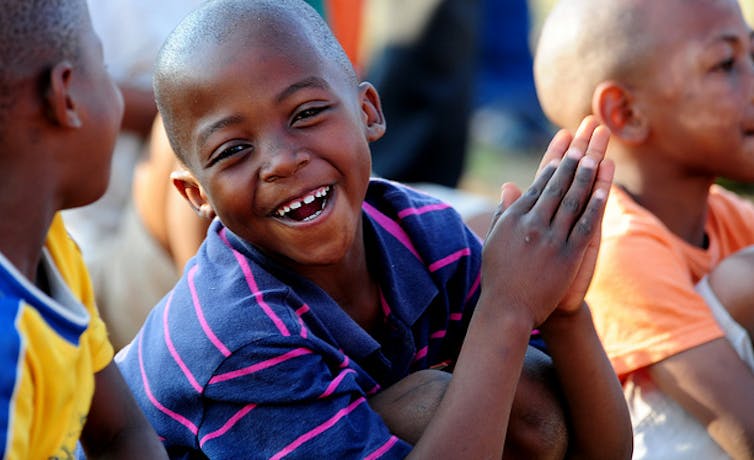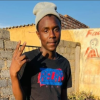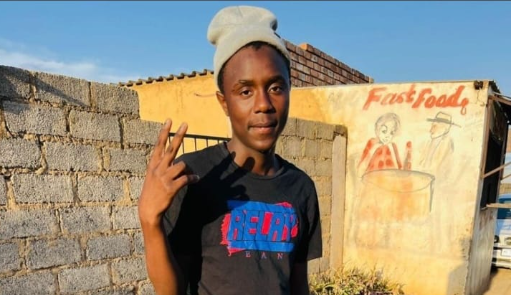South Africa must focus on its kids to meet UN development goals targets
By: Winnie Sambu, University of Cape Town and Lucy Jamieson, University of Cape Town

US Air Force/Staff Sgt. Debbie Lockhart
There have been several vast improvements in the lives of South Africa’s children in recent years. Close to 90% of children now have access to electricity – up from 72% in 2003. About 12% of children live below the international poverty line of USD$ 1.25 a day, down from 43% in 2003.
But amid this progress there are also striking inequalities. Compared to their urban peers, children in rural areas are more likely to live in households with high unemployment levels and inadequate facilities. For example more than 90% of children in urban areas have access to clean drinking water at home. But for those in rural areas, this figure sits at 39%.
Similarly, more than a third (34%) of children still live in households where biofuels are used for cooking, heating or lighting. This increases their risk of poor health now and in future, particularly if they’re also living in overcrowded conditions.
These were some of the findings from the latest Child Gauge, a publication we have been releasing since 2005 to monitor South Africa’s progress towards realising children’s rights.
For the 2017 edition of the gauge, we concentrated on how South Africa is doing to improve children’s lives in relation to the United Nations’ Sustainable Development Goals (SDGs).
There are 17 goals with more than 160 targets to end poverty, improve health, education, sanitation and access to water and reduce inequalities. Although none of the goals exclusively address children’s needs, most targets are either directly or indirectly related to children.
Our overall evaluation is that South Africa has made significant progress with some targets. But it’s still lagging far behind with others.
Take for example the preventable deaths of newborns and children under the age of five. The number of babies dying within the first 28 days of life sits at 12 for every 1000 babies born. This is in line with the target linked to SDG three.
But for every 1000 children that are born, 37 still die before the age of five from preventable causes, including diarrhoea. The goal is to reduce this to 25 deaths for every 1000 births.
There are still 12 years to go before the sustainable development goals are finalised. For South Africa to meet the targets it must focus on providing evidence based programmes for the most vulnerable and accelerate access to essential services.
A knock on effect
Poverty is the main underlying cause for the striking inequalities that are evident in children’s lives. Poverty means many South African children live in households that battle food insecurity and hunger. And these issues, often in tandem with inadequate child care and feeding practices, unhealthy living conditions and poor access to health care services, leads to high under-nutrition rates.
Under-nutrition, in turn, leads to children eventually being stunted, which means they’re too short for their age. Stunting remains stubbornly high in South Africa, affecting 27% of children younger than five.
Stunting takes more than just a physical toll. It also compromises children’s capacity to learn, their long-term health and their employment prospects later in life. There are also inter-generational effects: women who are stunted are more likely to give birth to infants with low birth weight, who are then at risk of stunting.
Malnutrition costs African economies billions of dollars. In South Africa, stunting costs the country an estimated R62 billion each year.
Change must come
Tackling the challenges around poverty, under-nutrition, stunting and access to water and sanitation to achieve the SDGs needs sustained government investment and policy change. These should lead to the implementation of strong, effective government programmes.
Ending stunting, for example, requires government to strengthen the public health care system and to improve access to primary health care. But it also needs government to train community health workers to detect and deal with infections early.
Improving food security would need programmes that give pregnant women and young children improved access to diverse and nutritious foods. It would also require programmes that encourage and provide mothers with necessary support for exclusive breastfeeding for the first six months of their children’s lives.
In addition, parents and caregivers need family support, parenting programmes, community based services and practical support such as maternity leave, child care and social assistance.
Various challenges and constraints stand in the way. These include lack of financial and human resources to implement the SDGs, as well as the capacity to monitor and evaluate the programmes that are put in place. South Africa is not alone in this: many developing countries face the same dilemma.
Fiscal constraints remain a big challenge, particularly for low-income countries, and for middle-income countries like South Africa where there are competing national interests.
Investing in children
It’s crucial for South Africa to invest more in early childhood development, particularly in education, health, nutrition, violence prevention, reading, and inclusive services.
![]() Without these investments South Africa will struggle to meet the sustainable development goals in 12 years time – and it will continue to fail too many of its children.
Without these investments South Africa will struggle to meet the sustainable development goals in 12 years time – and it will continue to fail too many of its children.
Winnie Sambu, Research Officer, University of Cape Town and Lucy Jamieson, Senior Researcher at the Children’s Institute, University of Cape Town
This article was originally published on The Conversation.
Written by: Natasha
Similar posts
MORE ARTICLES

Two boys accused of killing Grade 10 pupil remain behind bars

45 individuals arrested in Pretoria for drunk driving over the weekend

Pics: Inside Liesl Laurie-Mthombeni’s girls’ vacation

Berita celebrates 34th birthday with new single ‘Gugulethu’

Gauteng settles major e-toll debt with R5.4 billion payment
QUICK LINKS
UpComing Shows

959 Music Weekdays
Kaya 959 Hits
Real. Familiar. Memorable. Kaya 959 brings you the music you know and love from our playlist. Uninterrupted. Thursdays 20h00 to 21h00
close
The Best T in the City
With T Bose
He has held it down in the world of mid-morning radio with the best music, riveting topics, brilliant mixes and interesting guests. Every weekday, The Best T proves why he is the BEST by connecting to you like only your bro or favourite uncle could. He lets his listeners dictate the songs they want to hear in the ever-popular Top 10 at 10, and his Three Teaspoons never run out. Catch The Best T in the City Mondays to Fridays from 09h00 to 12h00.
close
Feel Good
With Andy Maqondwana
Feel good about feeling good! That's exactly what The Feel-Good show is about. An escape from the negativity that surrounds us, indulging you in good feels. Pass it on to one and all. Spread the good feeling around Gauteng with Andy Maqondwana.
close
Kaya Biz
With Gugulethu Mfuphi
The world of business is simplified for you by Kaya Biz with Gugulethu Mfuphi. This fast-paced award-winning business show talks to the corporate giants as well as up and coming entrepreneurs about their wins and challenges. Gugulethu invites guests to offer their analyses of markets and economies, and also delves into issues of personal financial wellness. Kaya Biz airs Mondays to Thursdays 18h00 to 19h00.
close
Point of View
With Phemelo Motene
Point of View with Phemelo Motene delves into the day’s current affairs, touches on real issues that affect people’s daily lives and shares expert advice on questions posed by the audience. Mondays to Thursdays 20:00 to 22:00.
closeConnect with Kaya 959
DownLoad Our Mobile App
© 2025 Kaya 959 | On The Street On The Air










